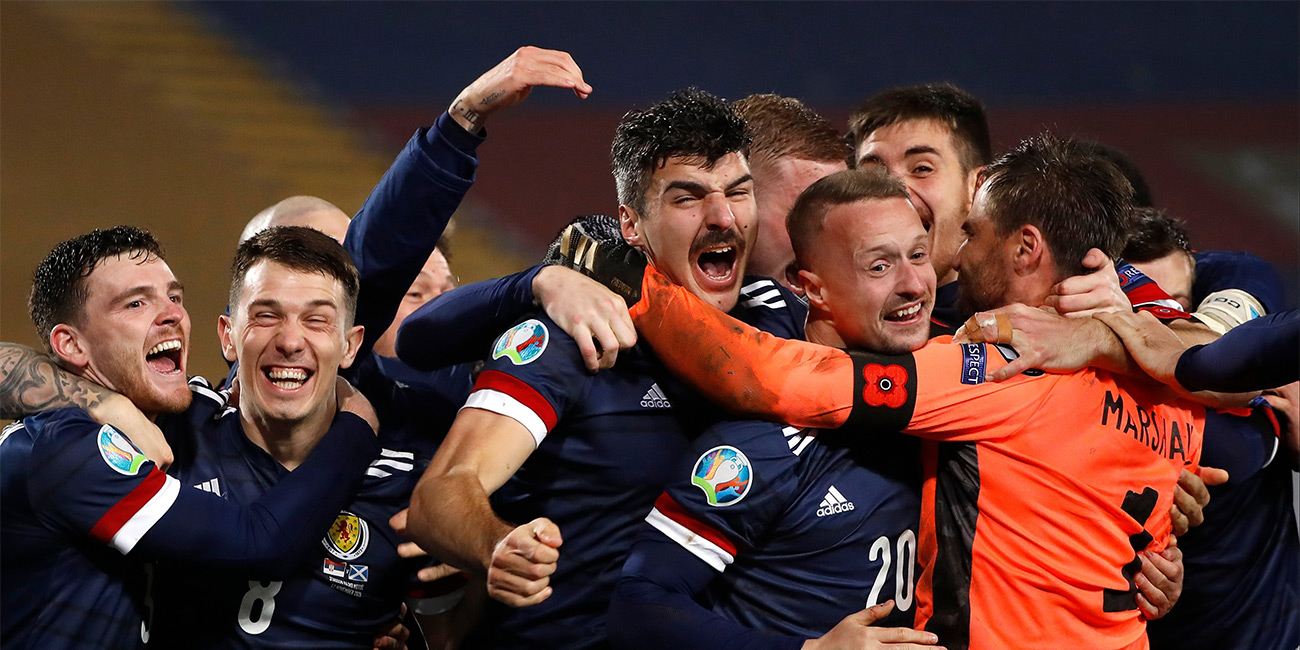When the action kicks off in Qatar this winter, it will mark the sixth consecutive World Cup that has been played without Scottish involvement. Few people would have imagined as Salaheddine Bassir scored the third goal in a 3-0 horsing by Morocco during France ‘98 that that would be the last act of Scotland’s World Cup story for at least 28 years, but in truth anyone betting on football has known during that time that Scotland were a team to avoid. The closest they have come to making it back to the big show was this year when they faced Ukraine in a play-off semi-final and lost. There’s a lot of work to do before Scotland can be confident for World Cup 2026.
A recent Euros qualification and some significant results have shown signs that the national team may be heading in the right direction, but the decline of Scottish international football since the late 90s has been long and slow. Can the resurrection be hurried along? Would you get good odds betting on football trends being overturned in the next four years? As the players tune in to the tournament this November and December and try to imagine themselves taking on England in Wales’s stead, there are a few things that Scottish football, Steve Clarke and everyone else need to focus on.
A plan that fits the best players
There is a solid argument to be made that the best three players in contention for Scottish national recognition are Andy Robertson, Kieran Tierney and Aaron Hickey. The problem is that all three are left-backs by trade. In some games, you can get away with playing Robertson as a wing-back and Tierney on the left of three centre-backs. What about Hickey, though? Past managers who’ve had him under their tutelage fancy that he could be an effective holding midfielder. He could also potentially thrive as an inverted full-back playing from the right, but would Robertson or Tierney fancy mirroring that role?
A succession plan for youth
It takes just one look at the current Scottish national squad to see that there aren’t many players there who will be under 30 at the time of the next World Cup. While you can make a case that the likes of John McGinn and Robertson have enough pedigree to merit a place at that age, it’s probably at least worth bringing some younger players into the squad berths currently held by Grant Hanley or Ryan Jack.
In the Nations League matches ahead, for which you can find the latest odds on in2bet.com.cy, it must be worth promoting some younger players like Alex Lowry and Calvin Ramsay to gain experience. The current “safe” approach to selection hasn’t prevented a few shoddy performances, after all.
Throw caution to the wind (occasionally)
Steve Clarke’s managerial career has been marked by a cautious approach, which worked wonders at Kilmarnock and turned Scotland from a laughing stock to a team which could at least put pressure on more highly-touted sides. However, there is a case to be made that an excess of caution costs them points against teams they should be beating. It’s been less than a year since it took an 86th-minute Lyndon Dykes goal to beat the Faroe Islands. A recent Nations League outing in Dublin ended in a 3-0 defeat against a mediocre Ireland side. These are games where younger attacking talent could be fielded to provide a more dynamic approach - which could come in useful later when the team needs a Plan B.

